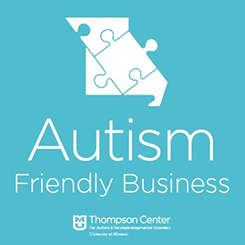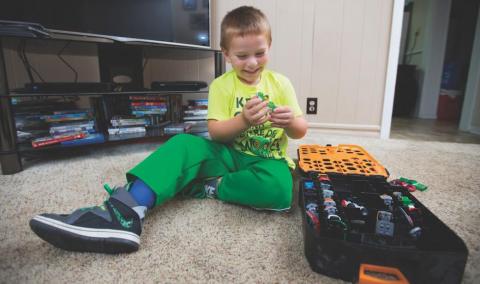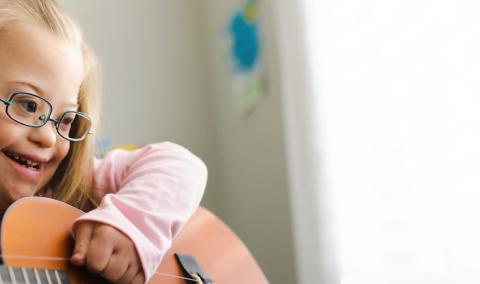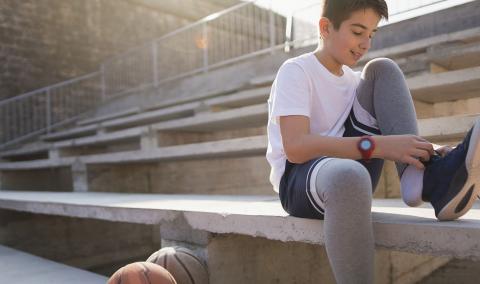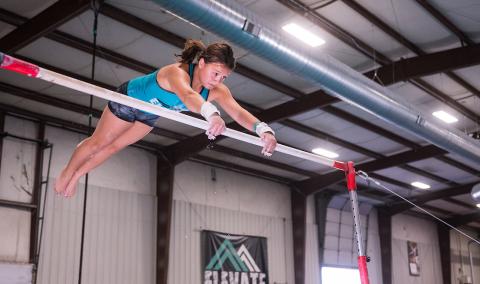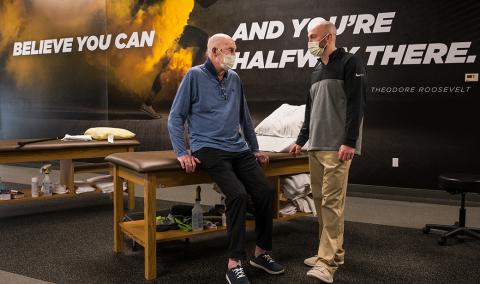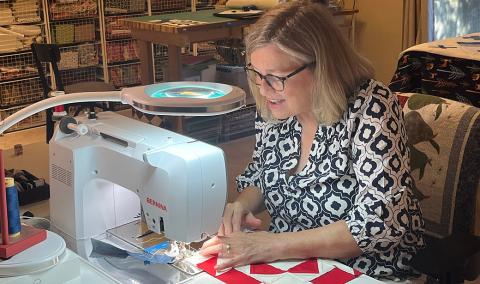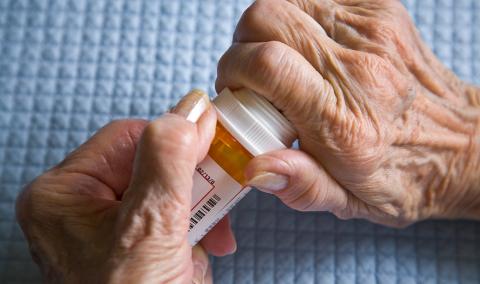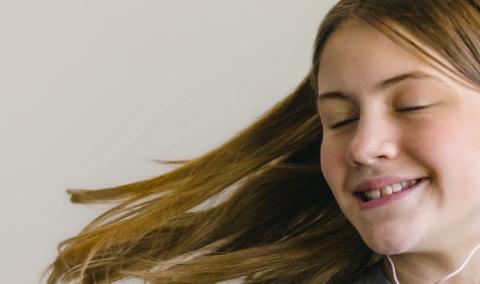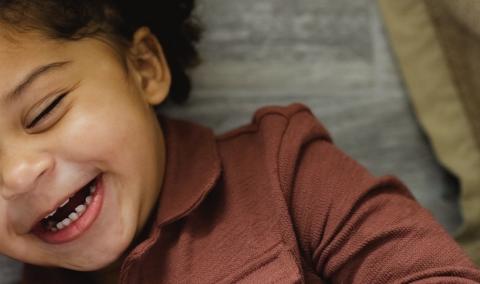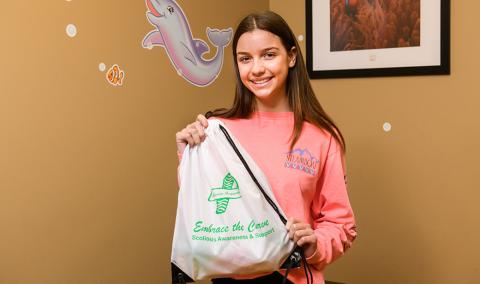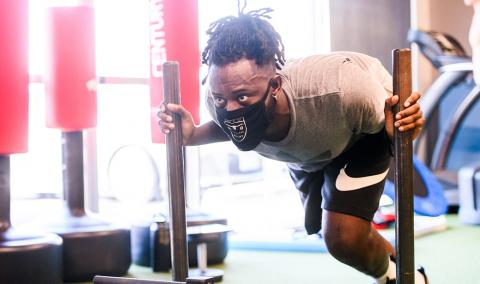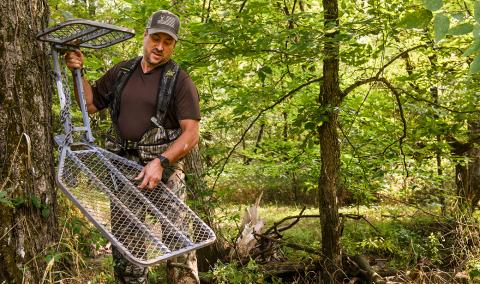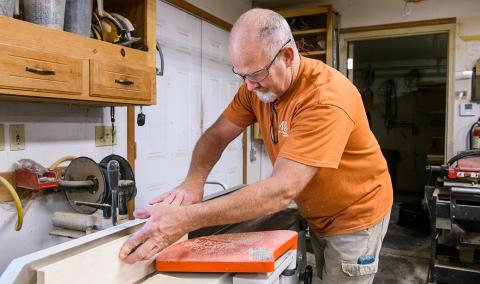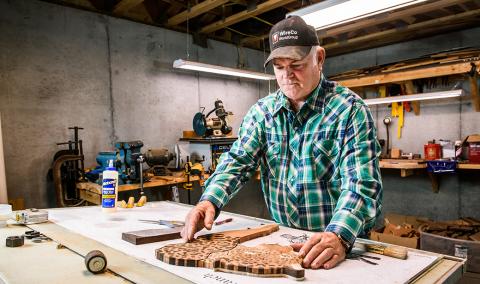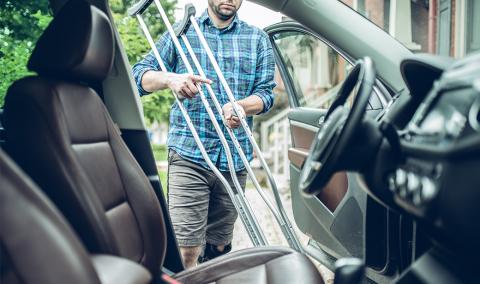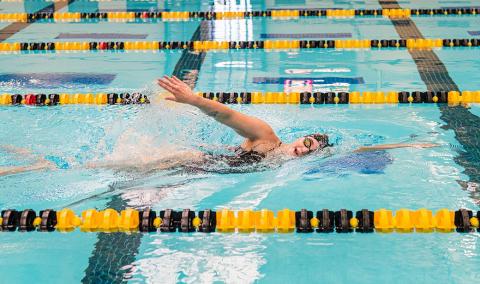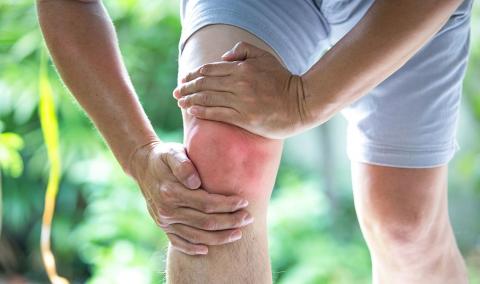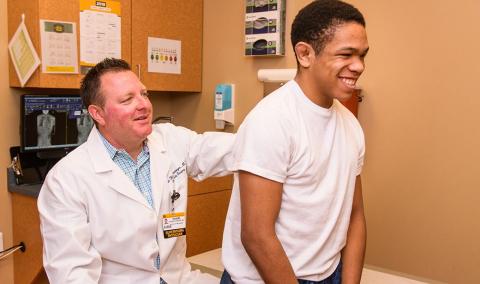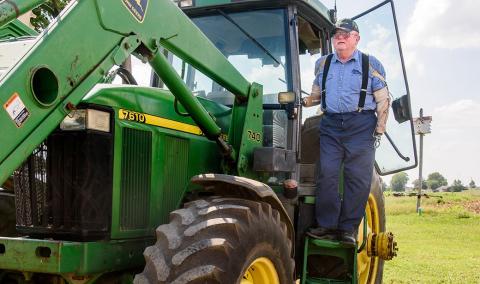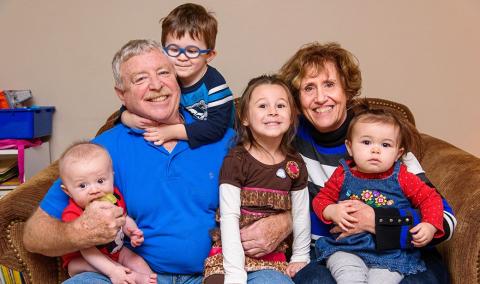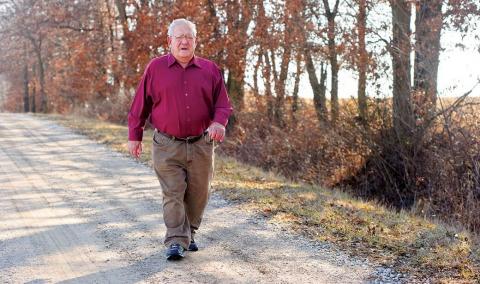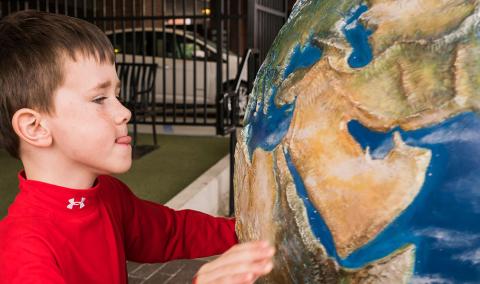Our pediatric orthopaedics team provides a multidisciplinary approach for medical, social, emotional and physical needs related to orthopaedic conditions that affect children.

Pediatric orthopaedic care is offered in a nurturing environment with knowledgeable physicians and the latest technology. Within our clinic, we have multiple providers, including surgeons, sports medicine doctors and nurse practitioners available to treat your child Monday through Friday.
Our surgeons, Daniel Hoernschemeyer, MD, Cecilia Belzarena, MD and Sumit Gupta, MD, specialize in many conditions, including scoliosis and cerebral palsy. Our sports medicine doctors, Aaron Gray, MD, and Tiffany Bohon, MD, evaluate and treat a variety of sports-related injuries, including concussions.
Working alongside our surgeons, our nurse practitioners, Nicole Tweedy, PNP and Kelly Scott, FNP, are available to help manage our non-surgical conditions, as well as assisting with post-operative care. Our nurse practitioners help to provide additional clinics, which allows for your child to be seen in a timely manner.
We are committed to helping your child manage his or her condition and live life to the fullest.
Pediatric orthopaedic conditions we treat
Click one of the links below to jump to a section.
Scoliosis
A healthy spine has three normal curves that form an “S” shape of the spinal column. The "S" shape occurs as a child develops into an upright position. Scoliosis is a condition where the spine develops in an abnormal lateral position (abnormal curve). The doctor will diagnose your child with scoliosis when the lateral (side) curve is greater than 10 degrees.
There are four types of scoliosis:
- Congenital scoliosis (infantile idiopathic)
- Degenerative scoliosis
- Idiopathic scoliosis
- Neuromuscular scoliosis
Our providers offer vertebral body tethering (VBT), and we have a Scoliosis Mentoring Program.
Learn more about our treatments for scoliosis.
Skeletal dysplasia
Skeletal dysplasia is a group of genetic disorders characterized by short stature. They are frequently associated with a range of orthopaedic problems. Many children with skeletal dysplasia have a variety of medical and social concerns that cannot adequately be addressed by single visits with a pediatrician or internist.
To meet your child’s more complex needs, our Missouri Skeletal Dysplasia Clinic offers children a unique opportunity to have a comprehensive assessment performed by a variety of specialists. Our team approach includes our pediatric orthopaedics experts as well as specialists in genetics, radiology, nutrition, nursing and physical and occupational therapy.
Learn more about our treatments for skeletal dysplasia.
Spinal Stenosis
Spinal stenosis is a narrowing of the spinal canal. The lack of space puts pressure on the spinal cord and its nerves, causing irritation and inflammation. Some children are born with a narrow spinal canal while other may have an injury to their spine that causes spinal stenosis. At MU Health Care, we approach your child’s condition and treatment with understanding and support for you, your child and your family. You can be confident that our team of medical specialists can provide expert diagnosis, treatment and care for your child.
Nonsurgical treatments for spinal stenosis may include:
- Activity limitations
- Exercises and stretching to improve flexibility and muscle strength
- Hot/cold applications
- Medicines to reduce swelling or relieve pain
- Physical therapy
- Rest
- Support devices such as a back brace
- Therapeutic massage
Surgical options, if needed, may include:
- Decompression laminectomy. This procedure involves back surgery to remove the bone and/or tissue that are causing pressure on the spine.
- Spinal fusion. This surgery fuses together the painful vertebrae so they heal into a single, solid bone.
Cerebral palsy
Cerebral palsy is a disorder that affects movement and posture. Children with this non-communicable (cannot be passed from person to person) disease have typically sustained a brain injury that prevents them from using some of their muscles in a normal way. Characteristics of this condition include disrupted mobility; impaired sight, hearing or speech; involuntary movement of the limbs; and muscle tightness and spasming.
There is no cure for cerebral palsy, but our physicians and specialists work with children to help them gain as much physical control of their bodies as possible so they can lead productive lives. Our team includes with speech, physical and occupational therapists that work together to treat your child. We also have an orthotist available to prepare and adjust wheelchairs and other adaptive equipment while you wait.
Learn about our treatments for cerebral palsy.
Clubfoot
Clubfoot is a congenital (present at birth) condition that affects one or both feet, making it appear as though the foot has been rotated at the ankle. Children with this condition may look like they’re walking on their ankles or on the sides of their feet.
The goal of treatment for clubfoot is to reduce or eliminate all of the components of the deformity so your child has a normally positioned, functional, mobile and painless foot. To achieve that goal, treatment consists of serial (plaster) casting, on a weekly basis for six weeks, then surgery and splinting.
Limb Deformity
Limb deformities, such as bow legs and knock knees, often correct on their own. When these conditions persist or become worse, MU Health Care pediatric orthopaedic surgeons are ready to help.
Treatment for the correction of upper- and lower limb injuries and deformities in children varies from adaptive footwear to surgical limb lengthening.
Limb deformity problems include many different conditions, such as:
- Bow legs
- Congenital conditions present from birth
- Contractures
- Flat foot
- Infections or tumors of the bone
- Injuries of the growth center of the bone
- Knock knees
- Leg length discrepancy
- Neurofibromatosis
- Osteogenesis imperfect
- Syndactyly
Treatment options may include:
- Orthotics Splints or braces
- Physical or occupational therapy
- Prosthetics Artificial limbs
- Surgery
Related Conditions & Treatments
- Adolescent Medicine
- Chest Wall Deformities
- Down Syndrome
- Emergency Care for Kids
- Gastrostomy and Feeding Access Program
- Hyperbaric Oxygen Therapy
- Juvenile Diabetes
- Neonatology
- Pediatric Anesthesiology
- Pediatric Cancer
- Pectus Carinatum
- Pectus Excavatum
- Pediatric Cardiology
- Pediatric Dermatology
- Pediatric Development and Behavior
- Pediatric ENT (Ear, Nose and Throat)
- Pediatric Epilepsy
- Pediatric Eye Care
- Pediatric Gastroenterology
- Pediatric Infectious Diseases
- Pediatric Inpatient Rehabilitation
- Pediatric Nephrology
- Pediatric Neurology
- Pediatric Neurosurgery
- Pediatric Orthopaedics
- Pediatric Plastic Surgery
- Pediatric Primary Care
- Pediatric Psychiatry
- Pediatric Pulmonary Medicine
- Pediatric Sleep Medicine
- Pediatric Surgery
- Pediatric Surgical Services
- Pediatric Urology
- Pediatric Vascular Anomalies
- Pediatric Weight Management
- Sickle Cell Disease
- Aerodigestive Program



